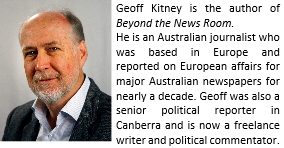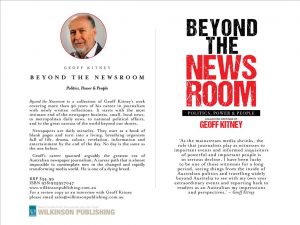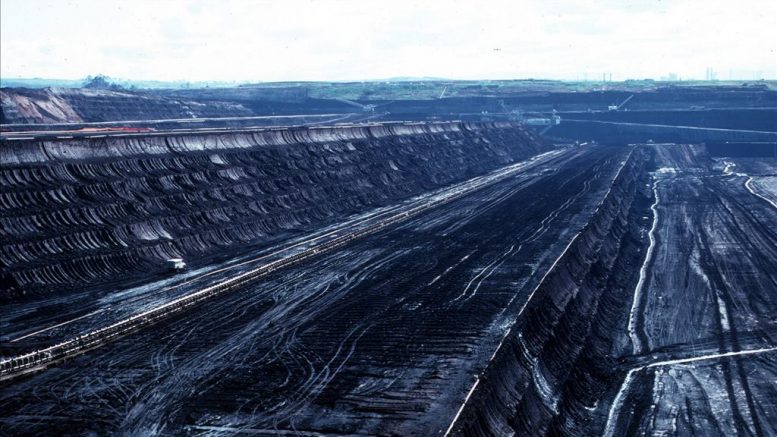Battles to save the planet have re-ignited inter-generational conflict, writes Geoff Kitney. In Australia, the young are taking on the big mining companies whose wealthy owners wield immense power.
Beware the children. They are revolting.
It’s a sign of the times that a lot of adults are increasingly frightened of their children.
Not just parents. Very powerful people – political leaders, billionaires, business tycoons, financiers, ordinary citizens – have suddenly become wary of the words and actions of a new generation of focused and determined young people.
It’s a little acknowledged consequence of climate change. Young people, in growing numbers around the world, taking on the political system and shaking it to force accelerated action to deal with the increasingly obvious threat posed by rising global temperatures. And they have a lot of adults very worried.
You can tell by the way the right-wing commentators who infest the Murdoch media empire are taking aim at the most prominent of this new, activist movement.
An example: Greta Thunberg was described last week by one News Ltd hack as reminding her of the High Sparrow in the Game of Thrones hit TV series.
According to Wikipedia, the High Sparrow is a character with “shrewd and unrelenting fanaticism, bordering on dangerous zealotry”.
In Australia, there is a persistent narrative from political conservatives that accuses Thunberg of leading a movement which is raising unreasonable fears about the impacts of climate change and created unnecessary anxiety among young people.
Australia has very weak political funding disclosure laws, which encourage blatant political influencing by big money.
Australian Prime Minister Scott Morrison makes this argument in defence of his government’s refusal to act decisively to reduce greenhouse emissions from Australia’s fossil-fuel heavy resources sector.
Morrison said “I don’t want our children to have anxieties about these issues” as he argued that children would ultimately want to have jobs in a strong economy as much as they would want to live in a healthy environment.
When school children took time out of school to join Thunberg-initiated Fridays for the Future rallies, Morrison led a chorus of voices saying that a child’s place on a school day was in school, not at political rallies.
In Australia, where the divisions over climate change action run deep in the political system and in the community, the inter-generational nature of this conflict is becoming increasingly apparent.
Samples of opinions of young Australians indicate there was strong sympathy for the rallies by young protesters outside the COP 26 UN conference in Glasgow and embarrassment about Australia’s position at the conference.
Australia has steadfastly refused to accelerate efforts to reduce greenhouse gas emissions and phase out fossil fuels – especially coal.
The Australian government continues to regard coal as an essential national export industry and is even considering using public money to fund new coal projects. It also strongly opposes pricing carbon and says technology not taxes are the answer to reducing emissions. Morrison told the COP 26 conference that Australia would do it “the Australian way”.
To the extent that the Australian conservative political and business establishment concedes that there is an inter-generational obligation to act more decisively to deal with climate change, its position is to put more faith in technological advances in the future than active measures now to limit future emissions. It is prepared to demonise youth climate change activism rather than respond sympathetically to it.
This reflects the power imbalance in Australia where big mining companies and their wealthy owners wield immense power, in part by providing campaign finance for the main political parties and especially the conservative parties. Australia has very weak political funding disclosure laws, which encourage blatant political influencing by big money.
The Australian government continues to regard coal as an essential national export industry and is even considering using public money to fund new coal projects.
The power of resources industry money to influence government policies which favour their industries and their businesses – backed by the full weight of the Murdoch media empire – means the voices of young people alarmed at the climate change-impacted world that their generations will inherit are barely heard.
Even the centre-left Opposition Labor Party is wary of offending the resources industry heavyweights and moves only timidly on climate policy.
While voters rank climate change high on their list of concerns for the future this does not seem to shift significant numbers of votes. Immediate concerns such as jobs and growth come first.
Which means Australians will not hear a major political leader reflect on their careers in the way that retiring German chancellor Angela Merkel has recently.
Merkel says not being ambitious enough on climate change policy is one of her big regrets because of the impact climate change is likely to have on future generations.
Merkel says she strongly supports the climate action movements now being mobilised by young people and has urged more young people to join. It was up to the generations who will bear the brunt of a changed global climate to push today’s political leaders to act more decisively, Merkel said.
Interestingly, similar sentiments were expressed by Queen Elizabeth in her opening video message in Glasgow. She told delegates that older generations owed it to future generations to act decisively to deal with climate change.
But two of the great women of our times carry little weight with the mining industry-fuelled climate policy refuseniks in Australia who stand between young Australians and their hopes of a future in a sustainable world. For young Australians, it is the Greta Thunberg’s and the success of their movements to force the pace of global action on climate elsewhere who are their best hope.
Headline image credit: Morwell open cut coal mine, Victoria
Credit: CSIRO Publishing, Supplied by CSIRO Science Image
Used under the terms and conditions of Creative Commons license






